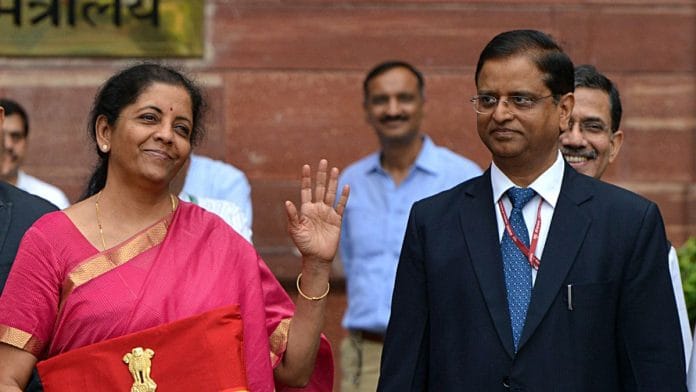Principal secretary to the PM Nripendra Misra was very keen that a financial package be announced for NBFCs. This package was to include two kinds of measures: first, giving further regulatory and resolution jurisdiction over NBFCs to RBI, and second, announcing a special window to provide them liquidity support.
Secretary, DFS, Rajiv Kumar proposed a package of amendments in the RBI Act, including conferring regulatory and resolution jurisdiction to RBI, to be included in the Finance Bill. I was opposed to vesting resolution authority in RBI. I favoured creating a resolution mechanism on the lines of the FRDI Bill. Besides this principal issue, I found certain weaknesses in the package, including the unintentional insertion of a bail-in clause and excessive penalty provisions.
During my absence from Delhi to attend the G-20 meeting, the draft amendments proposed by the DFS got approved and vetted by the legislative department. I wrote a letter to the secretary, DFS, on 30 June, asking for three changes to be made in the material that he had got approved for the Finance Bill. He agreed with two of these proposed changes but disagreed with not conferring resolution authority on RBI. He routed the file through me, recording his views on my letter. I recorded my reasons for not conferring this authority on RBI and submitted the file to the finance minister.
Finance Minister Nirmala Sitharaman found it difficult to clear any file on which differing views were recorded. She wanted every file to be completely clean before she signed. In my short time with her, I could not find a single file where she recorded her views or decided to take a stand. She would either sign it, return it unsigned or keep it pending.
In view of the urgency to finalize the Finance Bill, she called Rajiv Kumar and me on the morning of 2 July for a discussion. I explained my reasons. I did not think she understood the difference between regulation and resolution, but she seemed persuaded to agree with my opinion. She asked me to record some background and additional reasons for my line of suggestion and resubmit the file. I did so. Rajiv was not happy. He brought up the matter again in the speech-reading session with the PM. There, Nripendra Misra supported Rajiv. The finance minister only commented that I had recorded a long note opposing Rajiv’s proposal. The PM said that the view expressed by Nripendra Misra and Rajiv Kumar was to be accepted.
The next day, the file was returned to my office from the finance minister’s office with the oral instruction: ‘FS knows what is to be done.’ I sent the file to secretary, DFS, who submitted the same back, noting on a fresh page that the proposal of the DFS might be approved. I signed it and sent it to the finance minister in view of the specific decision taken the previous day. However, Nirmala Sitharaman had different ideas. She would not sign the file with the earlier notes still in it. Her office conveyed this clearly to Rajiv. Rajiv told me the note sheets recorded earlier would have to be taken out, destroyed and replaced with new note sheets with same dates and numbers. Though I had never allowed such a thing in my life, I acquiesced only to ensure that the budget process could go through.
But I decided that I would not to be party to something like this ever again. It was the moment I made up my mind to quit the IAS.
 This excerpt from No, Minister: Navigating Power, Politics and Bureaucracy with a Steely Resolve by Subhash Chandra Garg has been published with permission from Juggernaut.
This excerpt from No, Minister: Navigating Power, Politics and Bureaucracy with a Steely Resolve by Subhash Chandra Garg has been published with permission from Juggernaut.






